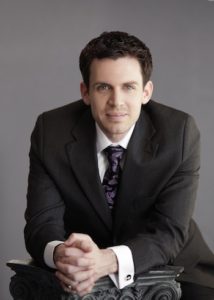I've written about gangsters before. I was almost going to write that it's a topic that fascinates me, but that would not be true. It's a topic--no, it's not a topic or a subject; it's a person or a group of persons, mostly male, if I may still use that term! And it's hardly a fascinating person or group. I really want to say that a gangster or a group of them are probably among the most despicable of all human beings. That's how I feel, deep down in my heart.
Now I know a Christian is not to despise anyone. Heh, God so loves the world...! And if He can love a world that has offended Him time and again, 24 X 7 over the centuries and millennia, perhaps even over billions of years, who am I to despise people who really have hardly affected me? I read about them in the papers and I cut out many articles to file away for occasions like this one, when I write about them. No, I really need to change my attitude radically and seek forgiveness. Learn to love them even, perhaps?
You may remember that in the previous post I treated you to an article I translated from my favourite Dutch daily, Trouw. It told the story how a Dutch court has criminalized the most vicious of Dutch gangs, the Hell's Angels. Not sure I used the right word: "criminalized." Lawyers, like us theologians, have a way with words and distinctions that are hard to follow for others. Perhaps the word "ban" would be more correct, though I would not know the difference. At any rate, both mean something like "away with them."
Now I do not regret their banning, for this is not banning persons from life, but their organization and their way of life or, rather, their way of death. If you were to spend a few hours reading my newspaper cuttings about gangsters, I don't see how you could defend them or how you could tolerate their culture, their way of life and their organizations. The Dutch have declared them not wanted and illegal. They have decided there no longer is place for them in Dutch society.
Here in Canada? We put a protective shield around them. We call it "human rights." Human rights allegedly protect every body in Canada--yes, allegedly. In reality, they protect criminals with their violent behaviour more than the ordinary law-abiding citizen. For the latter, human rights seem more like a prison that prevent us from protecting ourselves and each other. Gangsters do not care about anyone's rights; they step on them; they shoot and kill without genuine provocation. They spread terror left and right, but the authorities protect them with their gentrified legal system. They even spend unlimited time and money to find out who killed one of them.
Why on earth should society be so concerned and so protective about gangsters, people who have voluntarily chosen a most dangerous life style? When a proven gangster has been killed, why not just bury the guy and move on? That's one less to worry about. Now the police can spend time protecting law-abiding citizens.
In my mind, people who chose violence should lose their human rights. Finish. Why should we protect them from their own choices? So, I appreciate their criminalization in the Netherlands. It's an important step forward. But I recommend the next step also: Deny them their human rights. Quit protecting them while the ordinary citizens live in fear or just get shot.
Canada, when will you close the door to your prison of false human rights? You have criminalized terrorists. What's the difference between those, apart from their motivation?
==========
PS--I was planning to copy one of the many newspaper cuttings I have on the subject of gangsters. However, you will have noticed irregularities in the fonts used in these posts. I have not been able to overcome that problem; I'm just not a techie. However, a techie friend has just promised to help me fix the problem. So, I resist the temptation to include that cutting. Hopefully he will be able to help me out this evening. Once that is done, I may well succumb to the temptation of listing quite a number of such articles by their web access. We'll see what happens--but he first has to help me with the immediate past posts.

